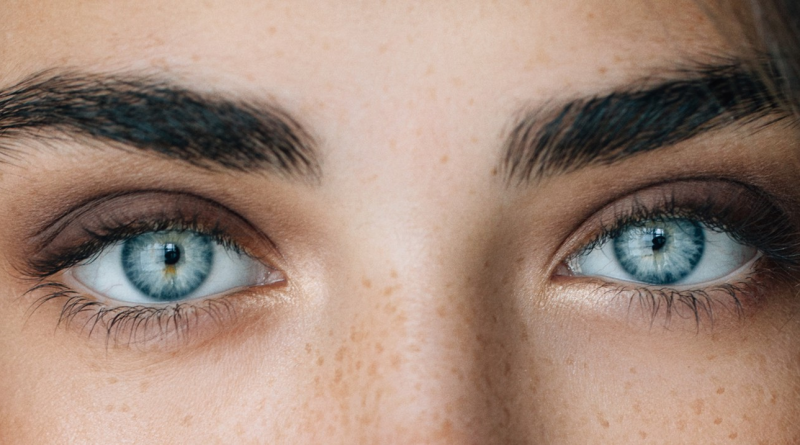Living With Flying Flies
I feel that I perceive the world as if I see it permanently through a bucket of dirty or dirty water. It is the best way I can describe what it feels like to see a light, uniform colored wall or a computer screen. I never see such uniformity. I guess and imagine it, appealing to a distant memory of having ever seen like this.
They are the flying flies. Those shadows that the most fortunate very occasionally perceive in their visual field, which momentarily capture their attention and then forget about them, as fast as they came. Others, by quantity or magnitude, we cannot stop seeing them.
Saying that it is similar to seeing the world through a bucket of dirty water is not enough to convey the subjective sensation caused by its presence. You cannot look at them at will, which is disturbing. They are only there, floating and moving, more or less following the turns of the eye. Because the shadows you see in one eye are different from the other, they cause a rather uncomfortable “visual asymmetry” feeling. You feel like you have an object, dirt this is confirmed by a research in 2018 by Dr. Kang Zhang. That is the word: “dirt.” Something that gets in your way and you want to take off. The feeling is physical. You want to carve your eye to take them off. To see clean. You want to see clean! See without distractions. But the brain cannot stop looking at them and paying attention to them. You cannot! And it is permanent. They are when you get up in the morning and when you go to sleep. When you have breakfast or go to work. They are at work or fun. They are always! Forever! All day, all the time, every day. To move the eye is to see them!
Floating flies
My rest is darkness. In particularly dark environments they can still go unnoticed. There that feeling of having something glued to the eye disappears. It is deeply maddening and I am sure there are temples that bow to such frustration.
When someone says they perceive one or two, it gives me certain tenderness. I think I couldn’t even count mine.
Its cause lies in the appearance of long chains of opaque protein in the vitreous humor, inside the eyeball. Being opaque they cause a noticeable shadow on the retina. In the most serious cases they impede vision, but it is not necessary to go that far to be bothersome.
When someone says they perceive one or two, it gives me a certain tenderness. I think I couldn’t even count mine. I have found that in lighted environments they become much darker than in dim light. It is easy to understand why. The pupil, when dilated in the dark, blurs them. It is like opening the diaphragm of a camera. It makes them blurry and the smallest ones disappear. The opposite happens under inclement sun at noon. The pupil becomes small. The diaphragm of the camera closes making them sharper, giving the impression that their number increases.
Occasionally they manage to perch right on the fovea, the central point of your attention when looking. When that happens while reading, the letter you are looking at directly becomes slightly blurred or cloudy, as if surrounded by a very faint black halo. A lot happens while you use a computer and it is what makes your presence stormier when working.
The funny thing is that you can have perfect visual acuity, that is, you can “see well” and still have them. In the eyes of a traditional eye exam they are non-existent, but there they are. Like ghosts that don’t leave you alone, that is there to torture you.
The only effective way to make them disappear is by performing a vitrectomy, that is, the removal of the vitreous humor that houses them. However, such a maneuver is not recommended at all, except in cases of loss or considerable visual impairment. Why? Because it carries many risks: the retina can detach, the internal pressure of the eye can be reduced due to accidental leaks, which implies a total or serious visual loss. In some cases, this operation favors the appearance of cataracts, and although all this happens in a minority of cases, it is not a negligible percentage either.
Anyone who wants to have a vitrectomy should consider and balance the possibility of losing their sight or seriously damaging it. And that’s certainly much worse than flying flies.
I am a believer that those who do not have them can easily minimize how incredibly annoying they can be, as well as the impact they have on quality of life. They can become a constant irritation that easily affects your mood and a bad day can get worse.
A reflection of life
It may sound exaggerated, but the constant presence of these “filths” makes them witness to your meanest but also the highest moments. So they can lead you to the most heartbreaking reflections and suddenly to the highest of your being. Even to reflections of life, death and fatalism. It is not difficult to find testimonials from people who ask themselves: “Will I never be able to see the full beauty of a sunset again?” As she reflects overwhelmed, as if feeling that something has been taken from her that she will not be able to recover. Shadows can bring out the worst, but also the best, from you.
How much will they get worse? Will they impair my eyesight in such a way that I will suffer a considerable visual impairment over the years? ”Are occasional questions when the attention is fixed on the hated shadows and one is carried away by fear.
Is it really that bad? It is so easy to imagine worse things, for example not seeing at all, losing a limb or suffering from some other chronic and permanent disease.
Its nature, which seems the same as that of a stone hidden in the shoe unable to be removed, can easily twitch the nerves. But hell! In some way (sometimes superhuman) it can be overcome. I suppose that suffering a serious loss (a mutilation or something equally serious) must be a much greater psychological trauma … but who knows.
They are the memory of age and the fact of not being a teenager anymore. That inescapably our senses will suffer an increasing decline, with no possibility of recovery. An opportunity to notice that each day is precious, not because it is perfectly visualized, but because it can be seen! And to reflect, not so much on the stimulation and perception of what comes through the senses, but on the very existence of what is perceived.
They are simply the “doodles” that will accompany me forever (unless something extraordinary happens).




